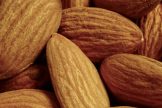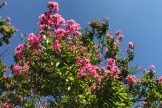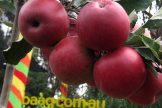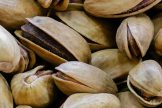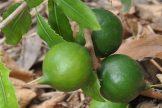
A beautiful deciduous tree that has the advantage of producing one of the worlds most popular nuts. Tall and spreading with deep roots, pecan trees need a significant amount of room to grow. They are able to tolerate most Victorian winter conditions, but have no tolerance for water logging or saline conditions, and need a sunny location. A neutral to slightly acidic soil is ideal. Pests and diseases are rarely a problem in Australia.
Pecans have both male and female flowers which bloom at separate times. The varieties are classed as Type I (Type A) where the male flowers are produced first or Type II (Type B) where the female flowers are produced first. Consequently, for fertilization you need to match the male flowering first Type 1 with a female flowering first Type 2 in order for the male to fertilize the female flower.
If you use seedling grown trees you could wait 15 years before harvesting nuts, while with grafted trees you should get some nuts after 3 years. Interestingly pecans, like walnuts, produce juglone… which is toxic to many other plants. Consequently, plant your pecan away from your vegetable patch, rake up and dispose of the leaves – don’t use the leaves as mulch.

